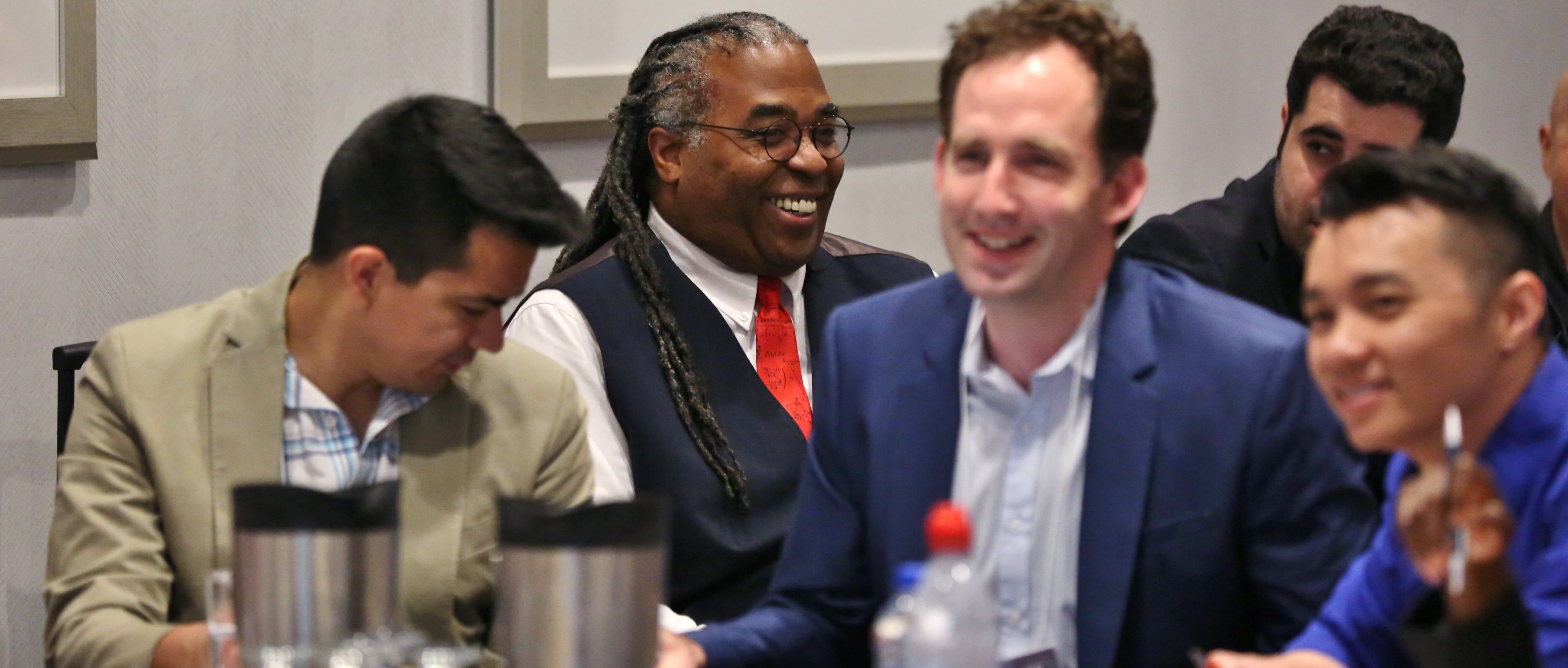Now Available: “A Compassionate City:” Over-Policing of Black and Latinx Youth
FOR IMMEDIATE RELEASE:
Brandy Jones | brandy.jones@gse.rutgers.edu | 848-932-0788
New Brunswick, N.J., December 7, 2021— The Samuel DeWitt Proctor Institute for Leadership, Equity, & Justice (Proctor Institute) is proud to announce the release of a new report, “‘A Compassionate City:’' Over-policing of Black and Latinx Youth in Pomona, California.” Report authors teamed up with Gente Organizada – a community-led, social action, non-profit whose mission is to build intergenerational power and wellness for youth and immigrant families in Pomona, CA – to analyze the policing practices of the Pomona Police Department (PPD). This report is a part of a two-report research series focused on justice.
The ultimate goal of the report is to “center the malpractices of a police department that does not receive the same attention as a large metropolitan police department, yet suffers from similar systemic issues of racial injustice and police brutality.” While authors specifically analyze the actions of PPD and provide recommendations tailored to the city of Pomona, these recommendations can be applied to police reform efforts nationwide.
“This report serves to elevate issues of racialized police misconduct in Pomona, California and our local organizers’ response. We hope this report will help other overlooked communities and organizers work towards redefining public safety and take action towards justice for youth subjected to hyper criminalization and the School to Prison Pipeline,” shared Frank Carlos Guzman Jr., Pomona resident, community activist, and one of the authors of the report.
By examining the racial and gender trends of PPD arrest data recordings from January 2016 to June 2020, researchers were able to confirm their hypothesis: the Pomona Police Department disproportionately targets and hyper-criminalizes Black and Latinx youth. Findings conclude that “Black youth are 4x more likely to be arrested than their population proportion would suggest, making up 22.4% of all youth arrests despite representing only 5.6% of Pomona’s population.”
Further, by analyzing the types of arrests, researchers found that Black youth are more susceptible to harsher offenses, such as misdemeanors, felonies, and civil infractions. Moreover, when looking at the Latinx youth population, they are “disproportionately charged with felonies, making up 74.2% of all youth felonies.” The report explains that “Latinx youth are not only the most arrested group of youth, but they make up an even larger proportion of all youth felonies.”
“It’s essential that we examine the ways that injustice persists and how the justice system negatively affects those it doesn’t aim to serve,” shared Marybeth Gasman, Executive Director of the Samuel DeWitt Proctor Institute for Leadership, Equity, & Justice. “This is part of what sparked the idea for the Year of Justice series — we sought to deeply examine justice or the lack thereof and look at how we can combat the inequities that many marginalized communities face.”
With the help of Gente Organizada, “youth activism is very much alive in Pomona.” The report emphasizes that youth will “move us to a justice-oriented society they envision – free of police and incarceration in their communities.” Pomona youth, parents, and community activists are building a surge of structural change and report authors recommend that it must be “uplifted and recognized by other cities across the nation.”
Additionally, the report recommends that Pomona divest from police departments and reinvest in evidence-based community safety; establish a city fund to support Black youth, families, and community-based organizations’ remove the police department from schools and eliminate police department youth services’ and mandate monthly data reporting from police departments, among others. While these recommendations are primarily focused on Pomona, they are generalized for other cities to adopt.
“We hope the findings of this report urge educators, policymakers, and the larger public to listen and protect the livelihood of historically excluded youth. For the young people who have been victims of police brutality, we see you, hear you, and will continue to fight with and for you,” shares report author Bianca N. Haro, Visiting Assistant Professor of Sociology at Pitzer College.
Report authors and community organizers will gather for a panel discussion to further delve into the issues outlined in the report and provide additional steps to combating this systemic matter. Join the Proctor Institute for “Over-policing of Black and Latinx Youth in Pomona” on December 15 at 5:30 PM EST. More information available here.
The report can be found here.
About the Samuel DeWitt Proctor Institute for Leadership, Equity, and Justice
The Samuel DeWitt Proctor Institute for Leadership, Equity, and Justice (Proctor Institute) is a national center that focuses on issues of leadership, equity, and justice within the context of higher education. It brings together researchers, practitioners and community members to work toward the common goals of diversifying leadership, enhancing equity, and fostering justice for all. The Proctor Institute is located at Rutgers University—New Brunswick, in the Graduate School of Education and houses the Rutgers Center for Minority Serving Institutions (CMSI). Learn more at https://proctor.gse.rutgers.edu.

